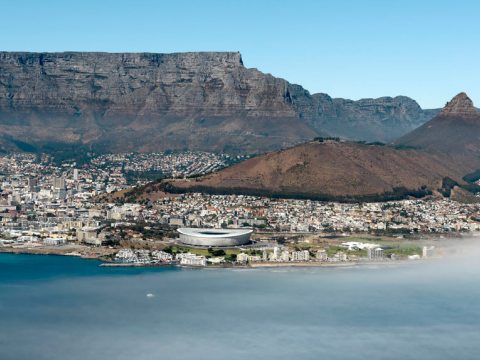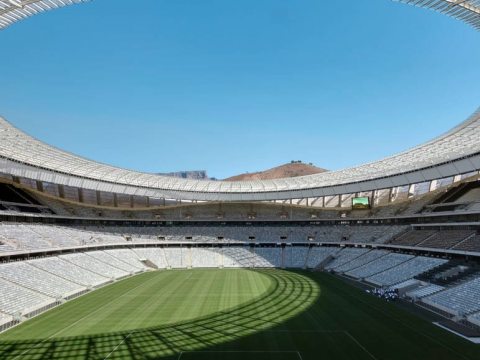Every four years since 1930, up to 32 nations have played for the coveted golden trophy. After the successful soccer season in Germany in 2006, NUSSLI will be able to continue its tradition as a supplier of temporary facilities for the world's largest and most important sporting events in South Africa.
As early as 2007, NUSSLI conducted initial studies on the meaningful and sustainable expansion of the stadiums in Durban and Cape Town. In 2008, a contract was added to the overlay planning for the 2009 FIFA Confederations Cup organizing committee, as the four stadiums for the Confederations Cup were also extended in conformity with FIFA guidelines. For the Confederations Cup, NUSSLI planned the necessary temporary event infrastructure for the stadiums in Johannesburg, Tshwane, Rustenburg and Mangung.
For the 2010 FIFA World Cup, NUSSLI received the follow-up order to provide the same planning services for the ten World Cup stadiums. From the accreditation center to access control, the contract comprised the planning and specification of all construction measures, the tendering with the support of a local partner, and the evaluation of contractors for the implementation with the support of the organizing committee.
NUSSLI was also commissioned as building contractor by the South African Host City to expand the stadium in Cape Town by around 13,000 seats of the highest quality. This would increase spectator capacity from 52,000 to 65,000 seats. After the World Cup, these seats will be dismantled again, as the remaining capacity of the stadium should be sufficient for subsequent use. The remaining area could then be converted to hospitality boxes, known as sky-boxes.



